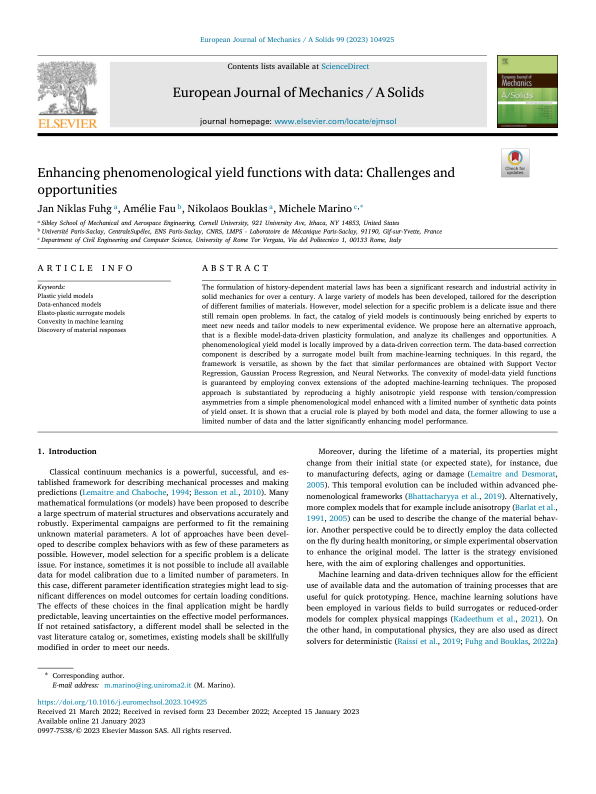Enhancing phenomenological yield functions with data: Challenges and opportunities
Published in European Journal of Mechanics, A/Solids, 2023

Abstract
The formulation of history-dependent material laws has been a significant research and industrial activity in solid mechanics for over a century. A large variety of models has been developed, tailored for the description of different families of materials. However, model selection for a specific problem is a delicate issue and there still remain open problems. In fact, the catalog of yield models is continuously being enriched by experts to meet new needs and tailor models to new experimental evidence. We propose here an alternative approach, that is a flexible model-data-driven plasticity formulation, and analyze its challenges and opportunities. A phenomenological yield model is locally improved by a data-driven correction term. The data-based correction component is described by a surrogate model built from machine-learning techniques. In this regard, the framework is versatile, as shown by the fact that similar performances are obtained with Support Vector Regression, Gaussian Process Regression, and Neural Networks. The convexity of model-data yield functions is guaranteed by employing convex extensions of the adopted machine-learning techniques. The proposed approach is substantiated by reproducing a highly anisotropic yield response with tension/compression asymmetries from a simple phenomenological model enhanced with a limited number of synthetic data points of yield onset. It is shown that a crucial role is played by both model and data, the former allowing to use a limited number of data and the latter significantly enhancing model performance. © 2023 Elsevier Masson SAS
